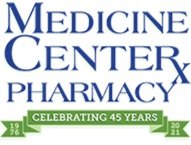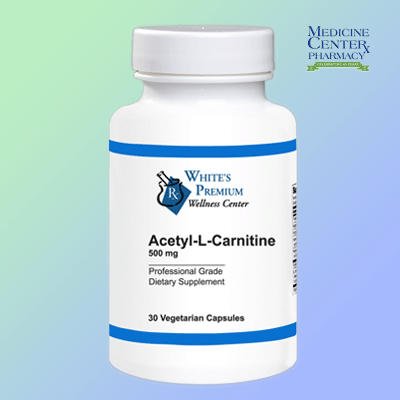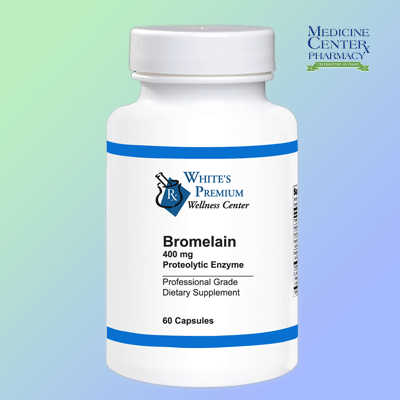June is Men’s Health Month, and it’s the perfect time to shine a light on a topic that doesn’t get talked about nearly enough — taking care of men’s health before problems arise. On our latest Health Matters podcast, we sat down with Dr. J. Evan Devillier of Aultman Alliance Family Medicine for a real, relatable conversation on what men need to know (and do!) to stay well for the long haul.
As your hosts — Paul White, R.Ph. and Brad White, R.Ph. of the Medicine Center Pharmacy — we’re passionate about helping men take control of their health. Whether it’s preventing heart disease or optimizing hormones, we believe education is the first step. This podcast episode was packed with helpful info, so let’s break down the highlights! 👇
Why Annual Wellness Exams Are Non-Negotiable
Dr. Devillier emphasized that many men put off regular checkups — often until something goes wrong. But an annual wellness exam is your chance to get ahead of issues like high blood pressure, cholesterol, diabetes, or even prostate problems.
He recommends that men begin yearly exams in their 30s or earlier if they have risk factors like a family history of heart disease, diabetes, or cancer.
“We want to catch small problems before they become big ones,” says Dr. Devillier.
Top Health Concerns for Men
Here are a few issues men need to keep on their radar:
Heart Disease: The #1 killer of men — often preventable with lifestyle changes and screening.
Hypertension & High Cholesterol: Both silent threats. Dr. Devillier shared how routine labs and blood pressure checks are key to early detection.
Obesity & Diabetes: Linked to numerous chronic illnesses, yet manageable with the right support.
Prostate Health: Watch for urinary changes, and ask your provider about PSA testing.
Mental Health: Depression and anxiety often go undiagnosed in men. “Mental wellness is just as important as physical health,” Dr. Devillier reminded us.
Let’s Talk Testosterone
One of the most engaging parts of our chat was the conversation around testosterone deficiency — something we often address at Medicine Center Pharmacy through customized compounded therapies.
Dr. Devillier shared that testosterone levels can begin to decline in men as early as their 30s and 40s, leading to:
Fatigue or decreased motivation
Low libido or erectile dysfunction
Reduced muscle mass and strength
Mood changes or mental fog
Through simple lab testing, a diagnosis can be confirmed — and that’s where we can help.
How Compounding Can Support Men’s Hormone Health
As a compounding pharmacy, we offer personalized testosterone therapy — often in the form of a topical cream tailored to your exact dosage needs. Unlike standard commercial options, compounding allows for:
More flexible dosing
Alternative forms (creams, gels, troches)
Fewer additives or irritants
Collaboration with your provider for ongoing adjustments
If you’re struggling with symptoms of low testosterone, let’s talk. We work closely with providers like Dr. Devillier to develop treatment plans that support optimal wellness.
What You Can Do Right Now
Dr. Devillier left us with this great advice: “Men don’t need to overhaul their lives overnight. Small steps — like cutting back on processed food, getting more sleep, staying active, and seeing your doctor regularly — really add up.”
✅ Here are a few simple tips to start today:
Schedule your annual physical
Get your cholesterol and blood sugar checked
Ask about hormone testing
Quit smoking (we’ve got tools to help!)
Prioritize sleep and movement
Take time to manage stress and mental health
Tune In & Take Action
Catch the full Health Matters episode featuring Dr. Devillier to hear more insights and helpful health tips. Whether you’re 30 or 70, your health is worth the investment.
And remember — we’re here for you. At Medicine Center Pharmacy, we’re more than just your pharmacy… we’re your partner in lifelong wellness.
Need help navigating testosterone therapy or supplements that support men’s health? Stop in or give us a call — we’d be happy to help guide you.
Listen Now to the Podcast:
Tune in to the YouTube Livestream:
Listen to the episode on Apple Podcasts, Spotify, Castro, Stitcher, Amazon Music, or on your favorite podcast platform.
Thanks for listening today! We’d like to remind our listeners, if you suspect you have a medical issue, please contact your healthcare provider. Thanks to our sponsor Aultman Health System. As always, we thank our listeners for joining us on Health Matters with the Medicine Center Pharmacy. Have a healthy week and we’ll see you again next Friday right here on News Talk 1480 WHBC.




















































Catch the full Health Matters episode featuring Dr. Devillier to hear more insights and helpful health tips. Whether you’re 30 or 70, your health is worth the investment.